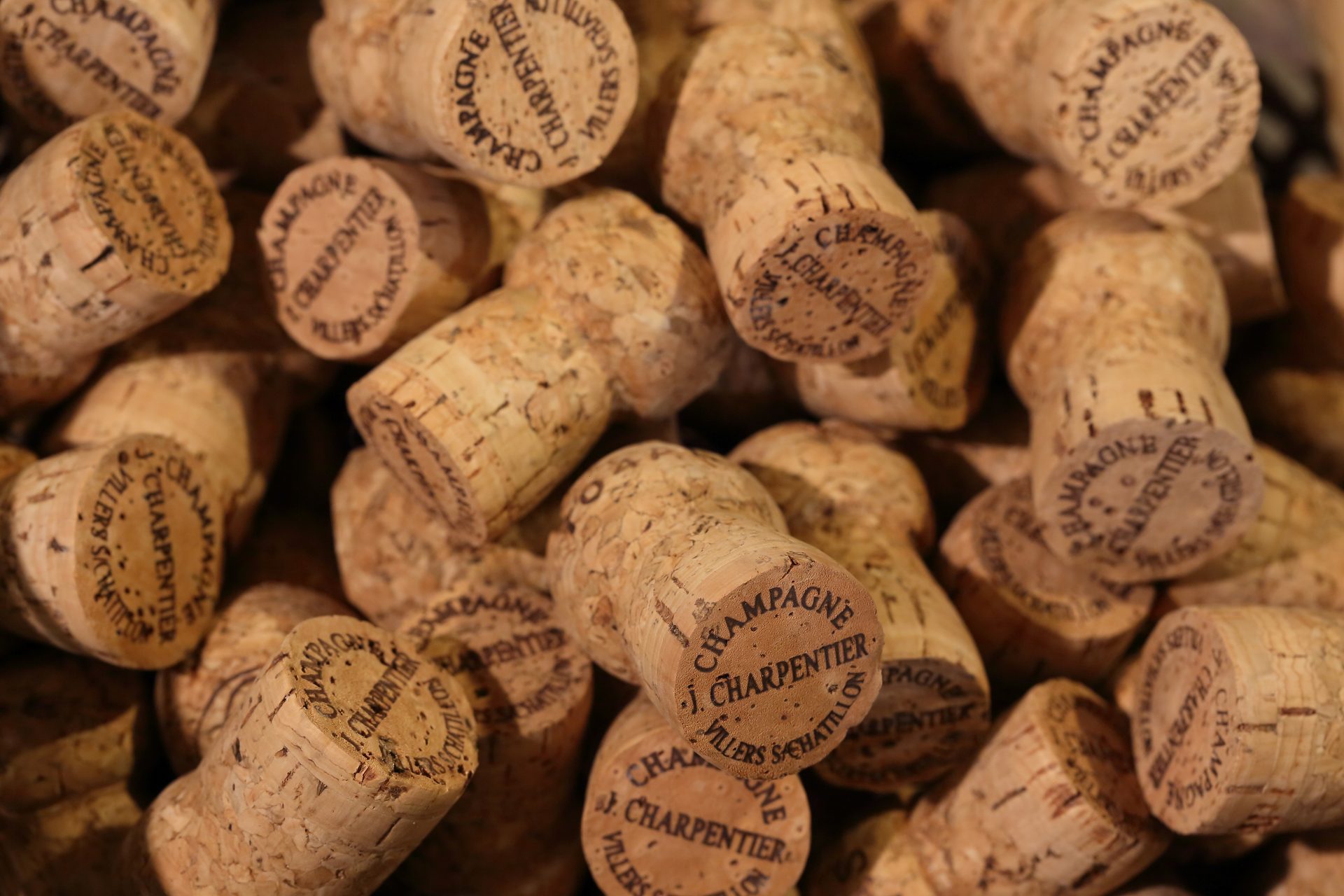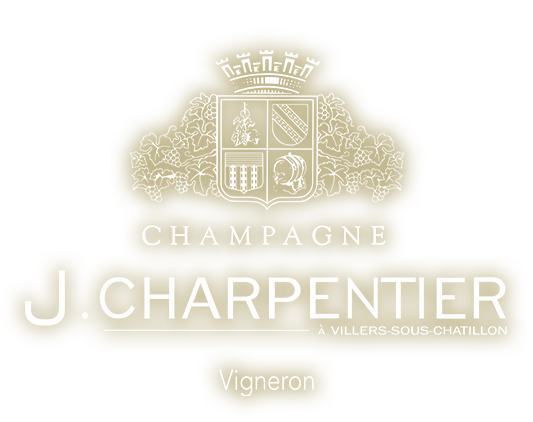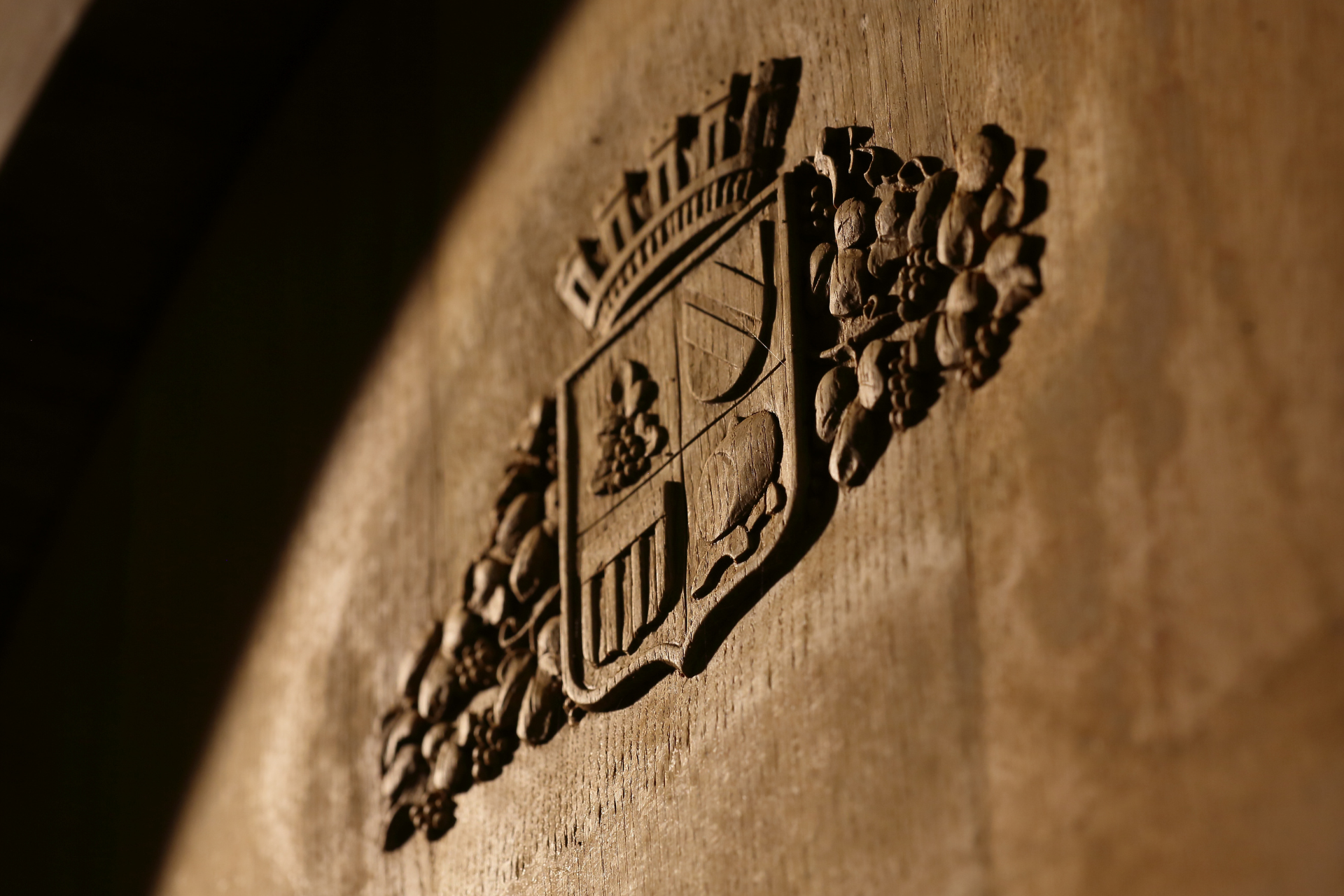
Small producer champagne
You are looking for a small producer champagne? As many wine lovers will tell you, you only risk a good surprise when you think outside the box. Indeed, big houses are not the only ones to produce quality champagnes. Thus, J.Charpentier offers you a range of champagne that will surely seduce you!
Wine grower’s champagne : a mastery of the entire production
For information, an independent winemaker produces exclusively his champagne with the grapes of his vineyard. So, this one controls the entire manufacturing process unlike champagne houses which buy the majority of their grapes from wine growers. To be precise, some houses also have vines. However, they are not sufficient to cover all their production needs.
So here’s the first difference between a small producer’s champagne and a large brand’s champagne. And it’s not necessarily the only one…
What are the differences between an owner’s champagne and a large brand?
For some, the quality of champagne is proportional to its notoriety. No doubt subjectively, they will then appreciate a Moët & Chandon, a Mumm or a Ruinart more than a small producer champagne. Now, is there a real difference in quality between a big brand and a “recoltant manipulant” champagne.
The question does deserve to be asked.
Focus on quality
Of course, we do not criticize the quality of renowned bottles. However, it is certain that large estates are not the only ones to produce fine and elegant champagnes. Many winemakers also produce exquisite and gourmet champagnes. And we do everything to be a part of it. In this process of excellence, our wines have won numerous medals.
For example, in 2020, we received the Gold Medal for Prestige Rosé at the Concours Général Agricole in Paris. In that same contest, the silver medal was awarded to us for the Reserve brut.That is, if the difference in reputation is not due to quality, it probably stems more from marketing.
More developed marketing among major brands
Clearly, large brands invest more in marketing than small producers. And logically, their notoriety is thus much more important in France but also in the world. Moreover, the higher volumes of bottles to be sold undoubtedly justify this more developed marketing strategy.
Apart from that, you may be wondering about the price.
The price issue
Very often, you will be able to obtain a small producer champagne cheaper than a large brand champagne. To be precise, the comparison is made here with equal range. For example, a classic Brut champagne from a large brand costs more often than its equivalent in an independent winemaker.
In addition, to have an excellent champagne with the big brands, it is generally necessary to go up in range. This increases the cost of purchasing a delicious champagne from a large house.
Small producer champagne: a nice surprise in perspective
As you understand, the label does not make the quality of champagne. Thus, a small producer champagne will have every chance to surprise you positively. Depending on your preferences, you can then opt for a Brut, a Blanc de blancs, a Brut rosé or a Millésime.
To make your choice, we invite you to discover our range!
Some suggestions of the range J.Charpentier
Among our range, we can for example suggest three cuvées in particular rewarded in 2019 and 2020. We refer here to the Prestige rosé, our champagne Réserve brut or our Blanc de blancs brut.
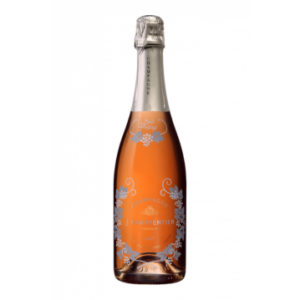
Prestige rosé
Composed of Pinot Noir, Pinot Meunier and Chardonnay, Prestige Rosé won the Gold Medal at the 2020 Concours Général Agricole in Paris. This small producer champagne will seduce you with its fruity notes and complex aromas.
With a dosage of 8.5 grams per liter, it is intense and lively in the mouth while keeping an excellent balance.
You can serve this cuvée during the meal, with dishes based on fish, guinea fowl or light game.
This small producer champagne is also perfect with red fruit desserts.
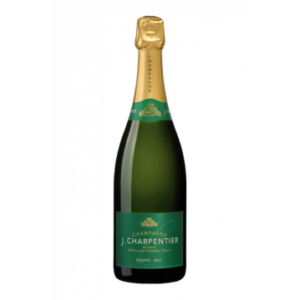
Réserve brut
Do you prefer white? We suggest the Reserve Brut also awarded at the 2020 Concours Général Agricole in Paris (silver medal). With 80% pinot meunier and 20% pinot noir, this small producer champagne embodies all the know-how of the house J.Charpentier.
Fruity, floral and spicy on the palate, this champagne also offers a pleasant nose.
You can present this wine as an aperitif but also during the meal. Namely, it combines wonderfully with cold fish such as halibut or salmon but also with charcuterie.
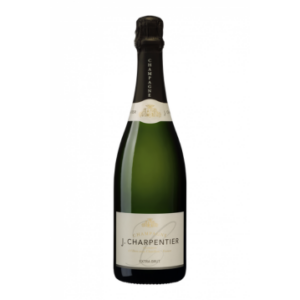
Blanc de Blancs brut
Among our range, you can opt for our Blanc de blancs brut rewarded with the Gold medal at the Vinalies 2019. This small producer champagne presents an elegant and delicate nose with floral and fruity notes. In the mouth, it offers fine and fresh aromas in perfect harmony.
This bottle can be opened as soon as the aperitif.
You can also enjoy this 100% chardonnay during the meal with a fish like pike.
Beyond these three suggestions, do not hesitate to discover our other champagnes! They are definitely worth a visit.
Champagne for all occasions
Traditionally, champagne was reserved for great occasions such as weddings, baptisms or birthdays. However, traditions have evolved. Bubbles are now available as an aperitif or during a meal.
Whatever the context, you can then perfectly opt for a small producer champagne. Be sure that such a choice will delight your guests, who will enjoy a beautiful taste experience.
FAQ about Small Producer Champagne
What is small producer champagne?
Small producer champagne is made by independent winemakers, often referred to as grower-producers or Récoltant-Manipulant (RM in French). These artisans grow their own grapes, vinify the wine on their estate, and manage the entire production process. This stands in contrast to large Champagne houses, which typically purchase grapes from many different growers to blend in large quantities.
How is it different from big Champagne brands?
There are several key differences. First, small producers rely on grapes grown on their own land, often resulting in wines that express a specific terroir. Second, their production volume is smaller, allowing for more attention to detail. Third, small producer champagne tends to focus more on craftsmanship and less on marketing, making the wine itself the centre of attention rather than the brand image.
Why should I try small producer champagne?
Choosing a small producer champagne is a great way to explore Champagne from a new angle. These wines often reveal a more authentic, personal, and terroir-driven character. You’re more likely to discover unique styles, local grape expressions, and a passionate philosophy behind the bottle. It’s a rewarding experience for anyone looking beyond mass-produced bubbles.
Is small producer champagne better than well-known brands?
Not necessarily better — but often different. Big brands offer consistency and wide availability, while small producers bring variety, personality, and originality. Many small producers win international awards and are highly respected among sommeliers and wine enthusiasts. Ultimately, it depends on what you value: branding and consistency or authenticity and individuality.
Is small producer champagne more affordable?
In many cases, yes. Small producers don’t have the same marketing overhead as global brands, so you’re paying more for the wine and less for the label. You can often find premium-quality champagne from a small producer at a lower price than a comparable bottle from a big house. It’s an excellent value-for-money choice.
What types of champagnes do small producers offer?
You’ll find a wide range:
- Brut
- Extra Brut
- Blanc de blancs (100% Chardonnay)
- Blanc de noirs (Pinot Noir and/or Pinot Meunier)
- Rosé
- Vintage (Millésime)
- Cuvées aged in oak or made from single vineyards
This diversity reflects each grower’s vineyard, philosophy, and vinification methods. Many small producers experiment more, resulting in surprising and distinctive bottles.
How can I identify a small producer champagne on the label?
Look for the letters “RM” (Récoltant-Manipulant) on the label. This means the winemaker has produced the champagne from grapes they’ve grown themselves. You might also see terms like “Vigneron Indépendant” or notice the producer’s own name prominently displayed rather than a commercial brand.
Where can I buy small producer champagne?
You can find them through specialist wine merchants, online retailers dedicated to artisan champagnes, or by purchasing directly from the producer’s website. They are also often featured at wine fairs, boutique wine bars, or in curated selections from sommeliers.
Is it worth visiting a small producer estate?
Yes — visiting a small champagne producer is one of the best ways to understand the passion and precision behind the wine. You’ll often meet the winemaker, tour the vineyards and cellars, and taste a wider selection of cuvées than you’d find elsewhere. It’s a more intimate and informative experience than visiting the large commercial estates.
What does terroir mean in the context of small producer champagne?
Terroir refers to the combination of soil, climate, topography and human influence. Small producers are often deeply connected to their land and use it to express subtle differences in flavour, structure, and aroma. A Blanc de blancs from chalky soils in the Côte des Blancs will differ greatly from a Pinot Meunier‑based cuvée from the Vallée de la Marne.
How can I choose the right small producer champagne?
Start by defining your taste: do you prefer dry and mineral, fruity and rich, or aged and toasty? Then, read tasting notes or reviews, look for awards, and try sample bottles. Many producers offer tasting packs or half-bottles to help you explore. Don’t hesitate to ask for recommendations at your local wine shop — they often have insider favourites.
Can I serve small producer champagne at a wedding or formal event?
Absolutely. These champagnes offer originality and elegance. Serving a lesser-known but high-quality bottle is a great way to stand out and impress guests. Plus, with more attractive pricing, it’s easier to provide a great champagne experience without exceeding your budget.
Do sommeliers recommend small producer champagne?
Yes, many top sommeliers actively seek out and feature small producers. Their uniqueness, diversity and ability to pair with food make them excellent choices for fine dining. In fact, many Michelin‑starred restaurants now list small producer champagnes as house pours.
Are there food pairings that work particularly well?
Definitely. Because of their variety, small producer champagnes can match a wide range of dishes:
- Brut or Extra Brut: oysters, sushi, goat cheese
- Blanc de blancs: seafood, white fish, parmesan
- Blanc de noirs: roast poultry, mushrooms
- Rosé: charcuterie, duck, red fruit desserts
- Vintage cuvées: truffle risotto, aged cheeses
The food-pairing potential is often more exciting than with standardised blends.
Is small producer champagne suitable for gifting?
Yes. It’s a thoughtful gift for wine lovers who appreciate craftsmanship and uniqueness. You can also personalise your gift by choosing a specific region, vintage or grape variety.

